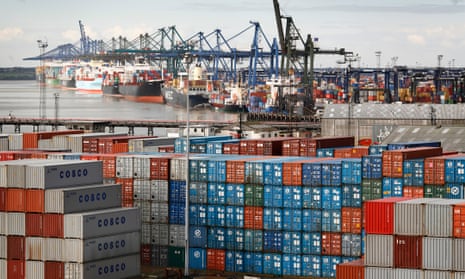For the first half century of its existence, joining the club of nations that became the European Union was, in legal terms at least, forever. Once inside, there was no way out.
But the Lisbon Treaty, which came into force in 2009 to streamline the EU’s working practices after it had expanded to include the former communist states of eastern Europe, also signposted the exit for the first time.
What is Article 50?
Article 50 is part of the Lisbon Treaty that governs membership of the European Union. It states that: “Any member state may decide to withdraw from the Union in accordance with its own constitutional requirements.”
It goes on to describe the process of withdrawal. Once a country has formally declared that it wants to leave, it must then negotiate with the 27 other members – for up to two years – about the terms of departure.
Issues at stake would include, for example, what trade tariffs Britain would face for different products and services; what rights to movement EU citizens would have into Britain (and vice versa); and how much of the financial regulation initiated in Brussels would apply to the City of London.
Who would have to sign off on the proposed deal?
Any severance terms would then have to be ratified both by the European council and the parliament in Strasbourg. “It will be difficult, because it has to go through the EU legislative process, with each state having its own political imperatives,” says Damian Chalmers, professor of European law at the London School of Economics.
Britain would also have to negotiate new trading arrangements with scores of non-EU countries, including China, India and the US, to whose markets it now has preferential access as an EU member.
How long will it take – is the two year deadline achievable?
Brexiters, including Ukip’s Nigel Farage, tend to play down the complexity of this process; but some experts believe that in reality it could take much more than two years.
The treaty states that the period for negotiation could be extended, with the unanimous support of all member states; without such an agreement, Britain would be unceremoniously ejected when the time was up.
Does Article 50 have to be triggered immediately?
David Cameron insists that if a referendum delivered a leave verdict, he would have little option but to kick off the formal, and potentially destabilising, process of extricating Britain from the European club.
But some advocates of Brexit argue that discussions with other member states could start informally, without Article 50 having to be invoked.
They also hold out the hope that the imminent threat of departure could smooth the way to a better deal for Britain – including on the politically explosive issue of migration – which could then be put to voters in a second referendum on EU membership. Dominic Cummings, of Vote Leave, has said there would be a “strong democratic case” for a second poll once a new deal was reached.
Boris Johnson had appeared to flirt with this idea, but now insists that June’s referendum will be final, telling the Times “out is out”, and in the event of a vote to leave, Britain’s politicians should “get out and then negotiate a series of trade arrangements around the world”.
What happens if Cameron is forced to resign after a leave vote?
Some in the leave camp would like to overthrow Cameron if the public opt to leave, and put a new leader in charge of negotiating a different relationship with the EU – though others, including Cameron’s predecessor Michael Howard, have insisted that the prime minister should stay on.
Anand Menon, professor of European politics at King’s College, London, argues that internal strife within the Conservative party could delay the process of invoking Article 50 and negotiating an exit plan, even if the voters decide Britain should go it alone.
“I imagine that there would be Tory leadership contest, and the platform would be, ‘here’s what we do next’,” he says. “The reality of British politics means that things will get savage here and no one will think about contacting the EU”.
